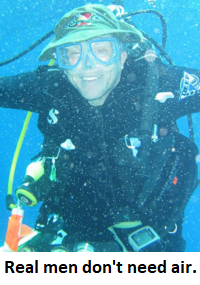You need to know about how in 1962 I was a half-wild country kid of 16 in the wilds of King George Country, Virginia, and drove a derelict ’53 Chevy that shouldn’t even have started but in fact went places that would terrify an armored corps. (You may think you don’t need to know this. Well, you do. It’s like, you know, real history and American.)
Now that Chevy was brown like two colors of mud. It had six cylinders, but ran on three, perhaps saving the others for emergencies. The closest it came to compression was a sort of ancestral memory, and the tires showed more fabric than rubber. But it was built like a tank. It had to be. Kids then were hard on cars.
The county was mostly woods and fields with towns far apart—King George, Colonial Beach, and Dahlgren Naval Weapons Laboratory on the Potomac, where I lived. Cars were our life. On Saturday nights, we drove interminably through the dark forests, just driving, moving, rapt with the night and freedom, without the sense God gave a crabapple. The times were different. We’d park for hours with our girlfriends in empty fields glowing with moonlight. We actually liked our girlfriends because we knew we probably weren’t going to get laid anyway, so we might as well not do it with someone who was good company. It didn’t seem to hurt us.
We learned things only known to teenagers. Don’t park under a mercury light because it makes zits turn purple and green.
Truth is, the Pluke Bucket—my tired Detroit dragon—was not of high consequence. The best cars had phone-flow. This refers to a gear shift of four speeds, located on the transmission hump. (“Four on the floor” to the uninitiated.) Below in the scale came threenatry—three on the tree—meaning a shifter of three speeds on the steering column. The Pluke Bucket had an automatic transmission, which was as prestigious as a venereal disease in a convent. But she was mine.
Our dream car was a fitty-sedden Chev 283, bored-and-stroked, with dual four-barrel carbs, magneto ignition, solid lifters, Isky three-quarter cam, milled heads, Hearst narrow-gate phone-flow, 3.51 Positraction and tuck-and-roll Naugahyde. But this was like saying that Ursula Andress was a hot date. Wasn’t going to happen. Not to us.
Lots of times we got into sort of half-trouble, which is about right for teenagers. Harry Burrell was a farmer noted for being irascible. He would come out with a shotgun after anyone who drove along the dirt road that crossed his fields. I remember that he held his pants up with a piece of rope. He was that stingy.
Anyway, one dark night after the spring rains, my girlfriend Rosie and I wanted adventure and roared in the Pluke Bucket along his road, blowing the horn. If Harry had shot us, we probably would have deserved it, but that was true of most things that the boys did.
Sure enough, the lights came on in Harry’s place, and he came after us on his tractor—so help me—just about the time we came to serious mud and our tired chariot began spinning out and fishtailing back and forth toward the ditches.
We began to be scared. Harry wouldn’t really shoot us (we thought), but we might wish he had. He was rough. But the Bucket and I had been in worse places, and I could surf in mud. In deeper places, the trick was to speed up, bump, whrrrr, and spin through without quite breaking the axle.
But Harry had a tractor. We hadn’t thought of that.
We came to where the road, which is an optimistic designation, dropped down the side of a hill to a narrow creek and then went back up. The tractor was gaining. Not good. We shot down the declivity, crossed the creek on momentum, and then … stopped, tires spinning helplessly. Things were deteriorating.
Americans are capable people, though without judgement. I leaped out to push, and Rosie took the wheel. Picture it: cold mud over my shoes, raw exhaust blowing hot over me, tires spraying mud, and tractor lights appearing at the crest of the hill. Darkness. Wetness. Our bodies would never be found. I made a superhuman effort, seeing no plausible alternative. The Bucket moved a little, and a little more.
Rosie was a country girl and understood mud. She knew that if she stopped to pick me up, the Bucket wouldn’t go forward again but spin out. She slowed, I ran. I leaped in the door, and we went up hill—not very fast but faster than a tractor.
That’s why Americans got to the Moon and occasionally win wars. I mean, can you imagine a Frenchman in a Lamborghini escaping Harry Burrell? Nah.
How We Were: The Night Harry Burrell Didn’t Kill Me and Rosie
Any column on this site can be reposted or otherwise shared without further permission.
